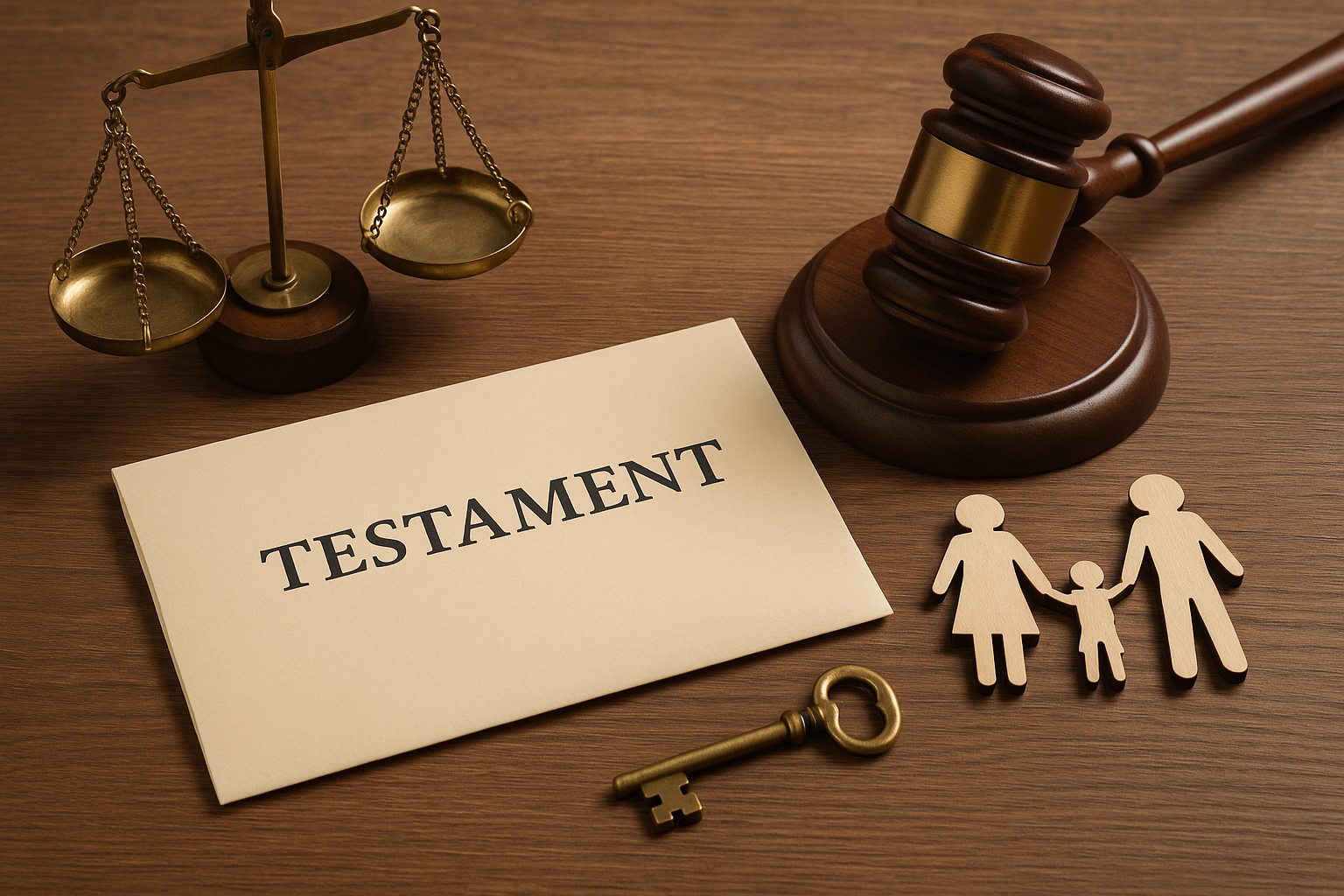Published on August 25, 2025
Succession law governs the transfer of the property, rights, and debts of a deceased person to their heirs. In Quebec, each successor has a right of option to accept or refuse the estate, according to strict rules and precise deadlines. Since these steps can seem complex, our firm supports you at every stage: estate analysis, advice on your rights and obligations, preparation of the necessary documents, and representation before a notary or court if required.

Learn more
The loss of a loved one brings sadness and difficult emotions. However, beyond the grieving process, certain legal steps must be taken, particularly regarding the estate.
Whether you have already gone through this stage or not, it is likely that one day you will participate in the distribution of a deceased loved one’s property. This article presents the basic concepts of succession law, in order to better understand how an estate works and the choices available to heirs.
What is an “estate”?
According to the legal dictionary of private law, an estate, also called an inheritance estate, “is the name given to the entirety of property, rights, and actions that belonged to the deceased at the date of death, and of which the various elements are transferred to the persons called to inherit.”
Is it true that you are required to accept an estate?
No! Contrary to popular belief, no one is ever required to accept an estate. The Civil Code of Quebec grants every person called to inherit, known as a “successor,” the right of option.
This right allows one to choose between accepting or refusing an estate. In principle, the deadline is six months following the death to make a decision. However, if an inventory is underway, the law provides for an additional period of at least 60 days after its completion to make an informed choice (art. 632). During this period, you are not considered an heir in the eyes of the law. To refuse the estate, you must see a notary or the judge (art. 646 para. 2).
Be careful, however: if you act as though you have accepted the estate—for example, by failing to draw up the inventory while knowing that the liquidator refused or was doing nothing—the law may conclude that you have accepted by default (art. 660). It is therefore essential to properly inform yourself before acting.
Who should you contact to refuse an estate?
If you decide to renounce an estate, it is not enough to say so verbally or to remain inactive. The renunciation must be official and is carried out in two ways (art. 646 para. 2).
First, it can be done by notarial deed in minute, meaning an authentic document drafted by a notary. This deed must then be transmitted to the Register of Personal and Movable Real Rights (RDPRM). It must also be sent to the Register of Personal, Movable and Immovable Real Rights (RDPRMI), if applicable, in order to be enforceable against third parties. This formality ensures that your renunciation is opposable and protects you against the debts of the deceased.
Second, renunciation can be made judicially : this is renunciation before the court. The successor called to inherit then files a request with the court clerk to formally renounce. The court acknowledges this declaration (and officially records it). This is therefore an effective way if you want the decision to be validated by a judge.
Conclusion
In summary, succession law governs the management and distribution of a deceased person’s property. Being named an heir involves choices and sometimes complex steps. To fully understand your rights and obligations, it is strongly recommended to consult a lawyer.
Our firm has recognized expertise in succession law and can assist you at every stage of the process. Contact us today to obtain advice tailored to your situation.